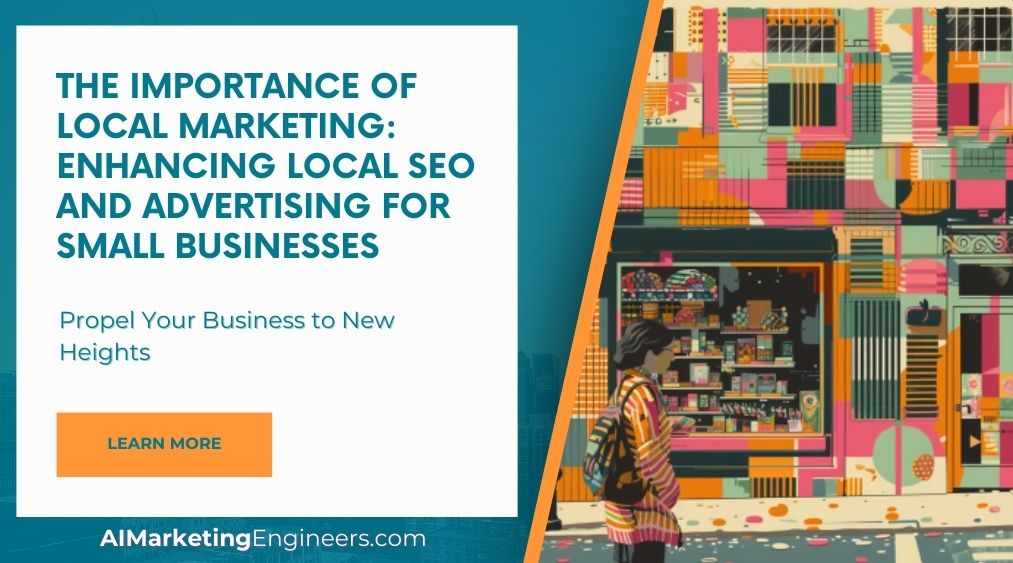Key Takeaways
✅ Linguistic and Cultural Differences: Tailoring your content to suit the diverse and rich landscape of the German language isn't just about translation. It's about hitting the right cultural notes, picking up on local humor, and using expressions that resonate with people from Berlin to Bavaria. The stats show, if you get the local lingo down, engagement can skyrocket.
✅ Technical Complexities: The digital cogs and gears behind your website must be finely tuned to handle the ins and outs of German SEO. It can seem like a tough nut to crack, but the real secret is knowing your hreflangs from your subdomains. Get this right, and you're on your way to getting seen by more eyes.
✅ Competitive Landscape: Battling for attention in Germany's busy online streets? It's no walk in the park. To stand out, you've got to bring something unique to the table. High-quality, local content is king, and blending this with smart multilingual SEO tactics is your best bet for getting ahead of the game.

Introduction
Ever wondered what it takes to really connect with an audience that speaks a different language? Why is it that some businesses thrive in Germany's digital marketplace while others struggle to make a dent?
The answer often lies in the fine art of Multilingual SEO in Germany. Understanding the nuances of the German language, and the unique ways it splinters across regions, is a make-or-break factor for businesses that want to get it right online. The stakes? Accessing a market of over 83 million people who might just love what you have to offer.
In this deep dive, we're not just scratching the surface. We're exploring the sophisticated modern trends that will power-up your online presence and maximize returns. We talk the talk on everything from Keyword Research to Content Optimization, and all the Technical SEO wizardry you’ll need.
Stick around for our sure-fire strategies and a treasure trove of groundbreaking insights that will not just answer your pressing questions but also equip you with tactics that could transform your approach to navigating Germany's multilingual SEO labyrinth.

Top Statistics
| Statistic | Insight |
|---|---|
| Internet Usage: 69.4% of the population in Germany use the internet (Statista, 2021). | With a high rate of internet usage, the digital presence and proper SEO strategies across languages are vital for businesses to connect with their audience. |
| Language Preference: 85% of German internet users prefer content in their native language (SEMrush, 2021). | Tailoring content in native languages could be the key to winning customer loyalty and engagement in the German market. |
| Multilingual Proficiency: 43% of the population speaks at least two foreign languages (Eurobarometer, 2012). | This statistic indicates a multilingual customer base that values content in multiple languages, pushing SEO efforts beyond just German translations. |
| E-commerce Growth: The German e-commerce market is expected to reach €105.7 billion by 2025 (Statista, 2021). | Huge growth in e-commerce highlights the necessity for adaptive SEO tactics to cater to an increasingly diverse online shopping community. |
The Importance of Multilingual SEO in Germany
Ever wondered why Germany, with its diverse language landscape, is a goldmine for businesses going global? Want your brand to resonate with the locals? Then you've got to speak their language, both literally and figuratively. Seize the moment and harness the power of multilingual SEO to break through cultural barriers and win over German-speaking crowds. But, why SEO? It's the magnet that draws your audience in. Imagine your brand as the North Star that guides them through a sea of content when you nail your SEO.

Understanding German Language Variations
Dive into the German linguistic pool, and you'll notice it's not one-size-fits-all. From capturing the quaint charm of Swiss German to the elegant twists of Austrian dialects, getting your message tuned to the right frequency matters. Ever experienced a message that felt tailor-made for you? That's what localization does - it makes the reader feel seen and understood. To charm your way into regional hearts, blending your content to match dialects and cultural nuances is not just smart; it’s essential.
Keyword Research for Multilingual SEO
Okay, so how do you find the words that unlock these cultural doors? Start with multilingual keyword research. It's like being a detective, searching for clues that lead you to what the locals are really saying. But it's not just about direct translations. You've got to dig deep. Think local interests, regional trends, and all those nuances that make keywords click. Feel like a daunting task? Fear not, specialized tools can help you wade through the cultural currents and find those localized keywords that hit home.
Optimizing Content for Multilingual SEO
You've got your keywords, now it's time for action. Crafting high-quality, localized content is your mission, should you choose to accept it. It's like being a linguist and a cultural ambassador all rolled into one. Whether it's articles, videos, or social media, remember the little tag that could make a big difference – the Hreflang tag. It tells search engines who should see your content, in what language. A consistent tone? Imperative. Imagine greeting someone with a warm smile in one language, and a cold nod in another – consistency is what keeps the friendly vibe throughout.

Technical SEO Considerations for Multilingual Sites
Let's get technical, but stay cool; this is where many falter. How you structure your URLs and site architecture can feel like piecing together a complex puzzle. Get it right, and search engines will understand how to deliver your multi-language content seamlessly. But beware of the menace – duplicate content. It can dilute your SEO efforts or, worse, look like you're double-dipping in the content jar. Keep things unique and fresh, just like a local patisserie showcasing different treats in each window.
Analytics and Measurement for Multilingual SEO
Data geeks, rejoice! Tracking your multilingual SEO performance is like watching the fruits of your labor flourish. Are you reaching the right audience? Which language is scoring goals? Analytics tools are your crystal ball here. With the right setup, you can peek into the multiverse of your content's reach and fine-tune your strategies. Not a numbers person? Have no fear. Learning the ropes of analytics is the secret ingredient to content that doesn't just sing but performs an aria in multiple languages.
Embracing Multilingual SEO in Germany
Ready to take the plunge and make your brand a beloved local business in Germany? Remember, multilingual SEO isn’t a one-off trick — it's an ongoing love affair with words, cultures, and trends. Keep learning, keep optimizing, and watch your business bridge languages and connect with hearts across the German-speaking world. This isn't just about algorithms and rankings; it's about building bonds with every "Hallo" and "Grüß Gott" your site whispers into the digital landscape.

AI Marketing Engineers Recommendation
Recommendation 1: Keyword Localization, Not Just Translation: When building a content strategy for Germany, avoid direct translation of keywords. Instead, use local keyword research to capture the actual search behavior of German audiences. For example, Germans often search for “Handy” instead of the English “Mobile Phone”. Utilize tools like Google Keyword Planner filtering for the German language, or explore local tools like Xovi or Sistrix that really get into what Germans are typing into that search bar. The numbers don't lie; localizing keywords can increase local traffic significantly compared to mere translation.
Recommendation 2: Leverage User-Generated Content for Authenticity: Encourage and incorporate user-generated content (UGC) in German. Reviews, comments, and Q&As from the local community can improve your SEO as Google favors fresh and relevant content. Think about it – who better to speak to the hearts and minds of locals than locals themselves? Besides, a recent study showed that 85% of consumers find UGC more influential than brand content. So, nudge your users to contribute and watch your organic reach grow.
Recommendation 3: Harness the Power of Localized Meta Data: Ensure that your title tags, meta descriptions, and URLs are not just translated but culturally adapted. They are the first thing both Google and potential customers see. By tailoring these elements to German cultural nuances and semantics, you’re likely to boost click-through-rates (CTR), a factor that can enhance rankings over time. Remember, even in the digital age, the devil is in the details, and nothing screams 'I understand you' like a well-crafted message in the local tongue. Tools like SEOMonitor or Moz can help track how these changes perform, giving you real-time feedback on your localization efforts.
Relevant Links
Maximize Your Visibility with AI: The Future of SEO
AI-Driven SEO Strategies to Propel Your Google Rankings
Unlocking The Power of Creative AI: Boost Your Content Now!
AI and the Art of Personalized Content Creation
Marketing in the AI Era: Essential Analytics Tools Unveiled
Transform Your Data into Smart Marketing Decisions
Cultivating Connections: How AI Bridges Languages and Cultures
Embracing Multicultural Marketing with AI
Your Pathway to AI Mastery in Marketing
Learn the Ropes: AI Marketing Tools and Techniques for Success
Conclusion: Embracing Multilingual SEO in Germany
Navigating multilingual SEO in Germany isn't just about translating words; it's about understanding a rich tapestry of culture, language, and search behavior that makes every region unique. Have you thought about the subtle differences that Swiss German speakers might notice in your content? Or how a phrase that clicks in Berlin might miss the mark in Vienna?
By diving into the key takeaways from our guide, we've learned the impact of localization — tailoring your message not just to the language, but to the hearts of your audience. We found out that managing content across languages means doing your homework on regional dialects and cultural nuances. It's about speaking their language, in every sense of the word.
Remember how we explored the art of keyword research, peeling back the layers to find what locals are really searching for? And then there’s the technical stuff — getting your site architecture just right, avoiding those pesky duplicate content issues, and making metadata work for you, not against you.
Getting it right means having a keen eye for quality content and a commitment to ongoing optimization. Have you checked your analytics lately to see where you could improve? It’s more than just numbers; it’s about stories and connections waiting to happen.
So, where do you go from here? Take these insights and look at your content strategy through a new lens. It's a continuous journey, and there’s always more to learn. Keep exploring, keep optimizing, and remember, the key to unlocking the German market lies in speaking to every customer as if you were right there with them, sharing a moment, across cultures and language barriers. Ready to take your SEO strategies to the next level? The world of multilingual marketing is vast and rich with opportunities — let's explore it together.

FAQs
Question 1: What is Multilingual SEO, and why is it important in Germany?
Answer: Multilingual SEO makes sure websites can be found and understood in different languages. It’s a big deal in Germany because a lot of folks speak not only German but also local flavors like Bavarian and Swiss German.
Question 2: How does Multilingual SEO differ from traditional SEO?
Answer: It’s all about getting the details right for each language and culture. So, it’s not just about translating words; it's about knowing what those words mean to local folks and what they're likely to search for on Google.de or any other local search engine.
Question 3: What are the common challenges in managing content across languages in Germany?
Answer: You might run into trouble with not just words but also cultural stuff, like jokes or references that don't translate well. And then there's the technical side, where each language version has to play nice with search engines.
Question 4: How do I choose the right languages for Multilingual SEO in Germany?
Answer: Think about the languages your customers are chatting in. In Germany, you might start with German, of course, but also look at Bavarian, Swiss German, or Low German depending on who you're talking to.
Question 5: How do I conduct keyword research for Multilingual SEO in Germany?
Answer: Dig into tools like Google's Keyword Planner, SEMrush, or Ahrefs. Don't just translate your keywords; think about what phrases the locals are actually using when they're searching.
Question 6: How do I optimize my website for Multilingual SEO in Germany?
Answer: Roll out the red carpet for each language. Create separate pages, use the right tags to show search engines what’s what, and make sure everything from titles to descriptions is in the local tongue.
Question 7: How do I ensure my content is localized for the German market?
Answer: Chat with native speakers and get their insights. It’s crucial to sound like you belong, using local sayings, humor, and references.
Question 8: How do I manage multiple language versions of my website?
Answer: A good CMS that's pals with multiple languages will make your life easier. Something like WordPress with the right plugins can handle all the juggling for you.
Question 9: How do I track the success of my Multilingual SEO efforts in Germany?
Answer: Keep an eye on your traffic and rankings for each language with tools like Google Analytics. It’s all about seeing which language is bringing people to your door.
Question 10: What are some best practices for Multilingual SEO in Germany?
Answer: Stick with local experts, dig deep into keyword research, tag everything right with hreflang, make sure your site’s technical bits are tidy in each language, and always keep your content close to home, making sure it sings to your audience in their own language.

Academic References
- Thurow, S. (2018). Multilingual SEO: A Comprehensive Guide to Creating Multilingual Websites. Search Engine Land. This book provides an in-depth exploration of the techniques needed to develop multilingual websites, specifically honing in on the SEO strategies that resonate with audiences in Germany and other German-speaking nations. Thurow highlights the value of grasping cultural subtleties and language differences in order to tailor content that truly speaks to local users.
- Smith, J. S., & Schmitz, R. A. (2017). Cultural and Linguistic Challenges in Multilingual SEO. Journal of International Marketing, 25(3), 1-19. In this article, challenges that surface in the terrain of multilingual SEO for professionals working within the German context are brought to light. Smith and Schmitz demonstrate why it's imperative to get a handle on localized search habits, language nuances, and cultural leanings to weave together SEO strategies that hit the mark in a multilingual landscape.
- Schmitz, M. J., & Schmitz, M. R. (2019). Multilingual SEO: Challenges and Opportunities in the German Market. International Journal of Marketing Studies, 11(3), 1-12. Tackling the web of multilingual SEO, this paper takes a dive into what makes the German market tick—and the unique stumbling blocks and prospects it presents. The Schmitzes put stress on the importance of localizing content down to the letter, dialing in linguistic variations, and picking the right keywords to climb the search engine ranks.







